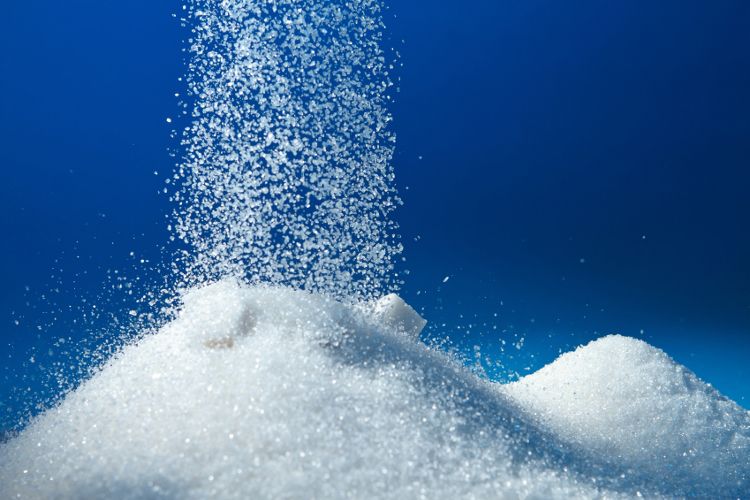World Health Organization releases hazard and risk assessment for aspartame
As a result of this assessment, the International Agency for Research on Cancer has classified aspartame as possibly carcinogenic to humans, citing “limited evidence” for carcinogenicity in humans.
Photo © iStockphoto.com/Maksud_kr

The International Agency for Research on Cancer (IARC), the World Health Organization (WHO), and the Food Agriculture Organization (FAO) Joint Expert Committee on Food Additives (JECFA) has released the results of an assessment of the health impacts of the non-sugar sweetener aspartame. As a result of this assessment, the IARC has classified aspartame as possibly carcinogenic to humans, citing “limited evidence” for carcinogenicity in humans (IARC Group 2B), while JECFA reaffirmed the acceptable daily intake of 40 mg/kg body weight. Group 2B indicates a lower level of certainty that the substance can cause cancer (third level out of four), with “Limited evidence in humans” and “Less than sufficient evidence in experimental animals.”
“Cancer is one of the leading causes of death globally. Every year, 1 in 6 people die from cancer. Science is continuously expanding to assess the possible initiating or facilitating factors of cancer, in the hope of reducing these numbers and the human toll,” said Francesco Branca, PhD, director of the Department of Nutrition and Food Safety for WHO, in a press release. “The assessments of aspartame have indicated that, while safety is not a major concern at the doses which are commonly used, potential effects have been described that need to be investigated by more and better studies.”
IARC and JECFA conducted independent but complementary reviews to assess the ingredient’s possible carcinogenicity and other health risks associated with consumption. The limited evidence IARC found for cancer in humans was the potential for hepatocellular carcinoma, a type of liver cancer, but found limited evidence in experimental animals, as well as limited evidence of the possible mechanisms for causing cancer. JECFA for its part concluded that there was not sufficient reason to change the established acceptable daily intake of 0-40 mg/kg body weight of aspartame. For example, according to JECFA, an adult weighing 70 kg would need to consumer more than 9-14 cans of a soft drink that contains between 200 and 300 mg of aspartame to exceed the acceptable daily intake.
“The findings of limited evidence of carcinogenicity in humans and animals, and of limited mechanistic evidence on how carcinogenicity may occur, underscore the need for more research to refine our understanding on whether consumption of aspartame poses a carcinogenic hazard,” said Mary Schubauer-Berigan, PhD, of the IARC Monographs program, in a press release.
Because JECFA’s risk assessment also determines the probability of specific type of harm such as cancer, the committee considers IARC’s classifications. JECFA ultimately concluded that the evidence of carcinogenicity from aspartame consumption was not convincing. “We need better studies with longer follow-up and repeated dietary questionnaires in existing cohorts,” said Moez Sanaa, DVM, PhD, WHO’s head of the Standards and Scientific Advice on Food and Nutrition Unit. “We need randomized controlled trials, including studies of mechanistic pathways relevant to insulin regulation, metabolic syndrome and diabetes, particularly as related to carcinogenicity.”
The U.S. Food and Drug Administration (FDA) issued a statement disagreeing with the classification. “FDA scientists reviewed the scientific information included in IARC’s review in 2021 when it was first made available and identified significant shortcomings in the studies on which IARC relied. We note that JECFA did not raise safety concerns for aspartame under the current levels of use and did not change the Acceptable Daily Intake (ADI),” wrote FDA.
“Aspartame is one of the most studied food additives in the human food supply. FDA scientists do not have safety concerns when aspartame is used under the approved conditions,” FDA continued. “The sweetener is approved in many countries. Regulatory and scientific authorities, such as Health Canada and the European Food Safety Authority have evaluated aspartame and also consider it safe at current permitted use levels.”
WHO also recently released guidelines advising against the use of non-sugar sweeteners, including aspartame and stevia, for weight management or reducing the risk of non-communicable diseases. The guidelines determined that long-term use of non-sugar sweeteners did not ultimately help consumers lose weight, and they may potentially increase the risk of type 2 diabetes, cardiovascular disease, and mortality in adults.
The classification by IARC and the recent WHO guidelines have no impact on the regulatory status of aspartame. “The U.S. Food & Drug Administration (FDA) first approved aspartame as a sweetener in 1974, and scientific evidence has continued to support the agency’s conclusion that aspartame is safe for the general population when made under good manufacturing practices and used under the approved conditions of use,” said Andrea Wong, PhD, senior vice president for Scientific and Regulatory Affairs at the Council for Responsible Nutrition (CRN; Washington, D.C.). “Aspartame remains an approved food additive in the United States. Recent separate announcements from IARC and JECFA do not change or detract from FDA’s decision, which takes into account safe levels of consumption.”